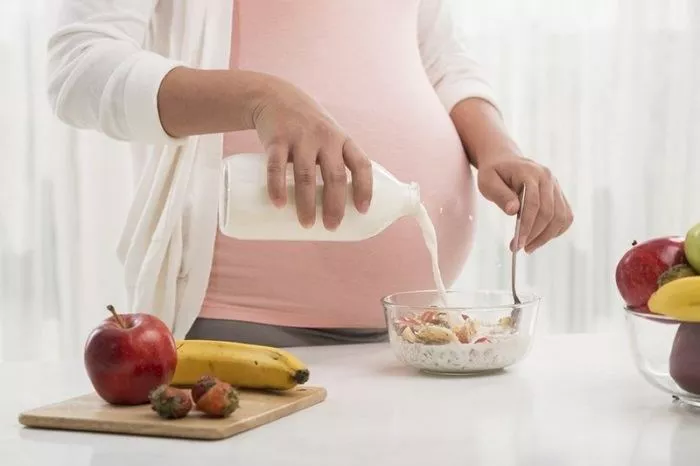Postpartum depression (PPD) is a serious mental health condition that affects many new mothers. This article delves into the causes of postpartum depression, its potential consequences, and available treatment options.
Understanding Postpartum Depression
What is Postpartum Depression?
Postpartum depression is a type of mood disorder that occurs after childbirth. While it’s normal for new mothers to experience some mood swings and emotional changes, postpartum depression goes beyond the “baby blues” and can significantly impact a mother’s ability to care for herself and her baby.
Prevalence of Postpartum Depression
Postpartum depression is more common than many people realize, affecting approximately 1 in 7 mothers. However, the actual prevalence may be higher due to underreporting and stigma surrounding mental health issues.
Causes of Postpartum Depression
Hormonal Changes
Fluctuations in hormone levels after childbirth can contribute to postpartum depression. During pregnancy, hormone levels, particularly estrogen and progesterone, increase significantly. After childbirth, these hormones drop rapidly, which can affect neurotransmitters in the brain associated with mood regulation.
Biological Factors
Some women may be more susceptible to postpartum depression due to underlying biological factors, such as a history of depression or anxiety, hormonal imbalances, or genetic predisposition. These factors can increase the likelihood of developing postpartum depression following childbirth.
Psychological Factors
Psychological factors, such as stress, lack of social support, and previous traumatic experiences, can also play a role in the development of postpartum depression. The stress of adjusting to parenthood, sleep deprivation, and concerns about the baby’s health and well-being can contribute to feelings of overwhelm and depression.
Consequences of Postpartum Depression
Impact on Maternal Health
Postpartum depression can have significant consequences for maternal health. Mothers with PPD may experience prolonged feelings of sadness, hopelessness, and worthlessness, making it difficult to care for themselves and their newborns. This can lead to neglect of personal hygiene, poor nutrition, and lack of sleep, further exacerbating the symptoms of depression.
Bonding and Attachment Issues
Postpartum depression can also interfere with the bonding process between mother and baby. Mothers may have difficulty forming a strong emotional connection with their infants, leading to feelings of guilt and inadequacy. This can have long-term implications for the child’s emotional development and attachment style.
Family Dynamics
Postpartum depression can strain relationships within the family unit. Partners may feel overwhelmed by the increased responsibilities and the emotional toll of supporting a depressed spouse. Siblings and extended family members may also be affected by the mother’s depression, leading to disruptions in family dynamics and increased stress.
Treatment Options for Postpartum Depression
Therapy
Psychotherapy, particularly cognitive-behavioral therapy (CBT), is a common treatment for postpartum depression. CBT helps individuals identify and challenge negative thought patterns and develop coping strategies to manage their symptoms. Therapy can be conducted individually or in group settings, depending on the individual’s preferences and needs.
Medication
In some cases, medication may be prescribed to help alleviate symptoms of postpartum depression. Antidepressants, such as selective serotonin reuptake inhibitors (SSRIs), are often used to treat depression and anxiety. It’s essential for women to discuss the potential risks and benefits of medication with their healthcare provider, especially if they are breastfeeding.
Support Groups
Support groups provide a valuable source of emotional support and encouragement for women with postpartum depression. Connecting with other mothers who are experiencing similar challenges can help reduce feelings of isolation and stigma. Support groups may be facilitated by mental health professionals or community organizations.
Prevention and Coping Strategies
Self-Care
Self-care is crucial for preventing and managing postpartum depression. This includes prioritizing adequate sleep, healthy nutrition, regular exercise, and relaxation techniques such as mindfulness and deep breathing exercises. Taking time for oneself and engaging in activities that bring joy and fulfillment can help reduce stress and improve mood.
Social Support
Building a strong support network is essential for new mothers. This may include partners, family members, friends, and healthcare professionals who can provide practical assistance and emotional support. Having someone to talk to and share experiences with can make a significant difference in coping with postpartum depression.
Open Communication
Open communication with healthcare providers is key to identifying and addressing postpartum depression early. Women should feel comfortable discussing their feelings and concerns with their obstetrician, midwife, or mental health professional. Healthcare providers can offer guidance and support and connect women with appropriate resources and treatment options.
Conclusion
Postpartum depression is a common and serious mental health condition that can have profound consequences for mothers, infants, and families. Understanding the causes and consequences of postpartum depression is essential for early identification and intervention. With appropriate support and treatment, women with postpartum depression can recover and thrive, ensuring the well-being of themselves and their families.
[inline_related_posts title=”You Might Be Interested In” title_align=”left” style=”list” number=”6″ align=”none” ids=”9213,9209,9205″ by=”categories” orderby=”rand” order=”DESC” hide_thumb=”no” thumb_right=”no” views=”no” date=”yes” grid_columns=”2″ post_type=”” tax=””]
































